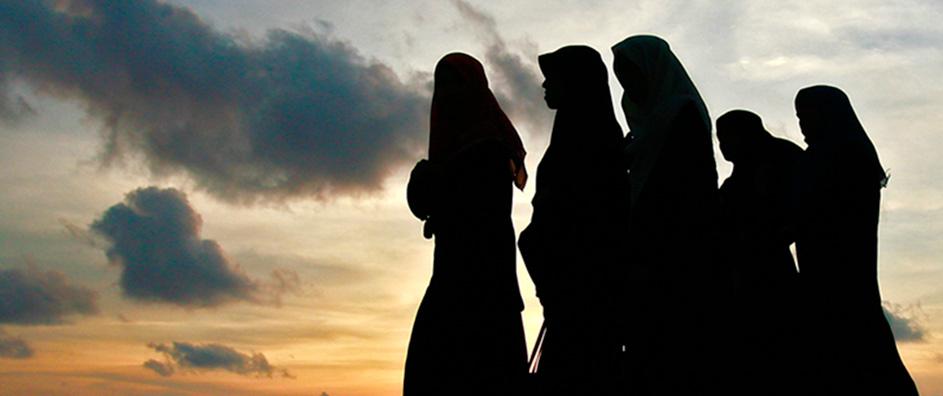The exploration of Baha’i teachings, particularly in relation to the liberation of the soul, unveils profound insights into the role of women within the context of religious and societal evolution. The Baha’i Faith, founded in the mid-19th century, critiques the socio-political hierarchies that have persisted for centuries, especially those that subjugate women. The narrative surrounding Baha’i women in Persia—now modern-day Iran—serves as a compelling case study in understanding these teachings and their implications for liberation.
The Baha’i concept of the liberation of the soul stems from its foundational belief in the oneness of God and humanity. This principle posits that all human beings possess an inherent dignity and potential that transcends their societal positions. Within this framework, women are not perceived merely as secondary figures but as essential contributors to the spiritual and societal advancement of humanity. The Baha’i writings explicitly affirm that “the earth is but one country, and mankind its citizens,” thereby establishing an ideal where gender equality is not only envisioned but necessitated for global harmony.
The historical context in which Baha’i teachings emerged offers critical insights into the evolution of gender dynamics. In 19th-century Persia, women were often relegated to the peripheries of social life, their contributions overlooked and undervalued. The advent of the Baha’i Faith called for a radical reevaluation of these conditions. Figures such as Baha’u’llah and His successor, `Abdu’l-Baha, were asserting the need for women’s empowerment as a vital component of social reform. This call for liberation was not merely symbolic; it was a rallying cry that inspired women to transcend traditional limitations and embrace their spiritual, educational, and social rights.
The liberation of Baha’i women cannot be fully appreciated without examining the systemic barriers they faced. Ideologically and institutionally, Persian society at the time was deeply entrenched in patriarchal values that confined women’s roles to the domestic sphere. The Baha’i teachings introduced a paradigm shift, advocating for the education and upliftment of women as a catalyst for societal progress. The emphasis on education was particularly noteworthy; it was posited that the empowerment of women through knowledge would serve as a fulcrum for elevating entire communities.
One of the illuminating aspects of Baha’i teachings is their prophetic foresight regarding the interconnectedness of women’s rights and broader societal wellbeing. When women are empowered to participate equally in economic, social, and political realms, entire societies flourish. This assertion reflects a deep understanding of socio-economic dynamics—a recognition that the liberation of the soul is inextricably linked to the liberation of marginalized groups, particularly women.
The Baha’i Faith draws upon the spiritual dimension of human existence, elucidating the notion that every individual, regardless of gender, is endowed with an immortal soul. This intrinsic worth serves as an underpinning for advocating for gender equality. While some may view the struggle for women’s rights as a secular pursuit, within the Baha’i context, it is framed as a sacred obligation. This spiritual underpinning elevates discussions of women’s liberation beyond mere sociopolitical activism; it places them firmly within the milieu of divine mandate.
A poignant aspect of the Baha’i teachings is their emphasis on the virtues and qualities attributed to women. Attributes such as compassion, nurturing, and wisdom are not simply relegated to feminine archetypes but are considered necessary for the growth and welfare of society as a whole. This perspective encourages a reevaluation of traditional gender roles, enabling women to emerge as leaders and visionaries rather than as mere participants in the preordained societal roles. By liberating women from restrictions imposed by patriarchal structures, the Baha’i teachings afford them the opportunity to embody these virtues in leadership positions.
Moreover, the narrative surrounding Baha’i women in Persia illustrates resilience in the face of adversity. Many Baha’i women became martyrs for their faith, exemplifying courage and commitment to the principles of equality and justice. Their stories reflect a deeper spiritual narrative that transcends cultural boundaries—one that resonates with contemporary movements for gender equality worldwide. It is important to recognize that while the struggle for women’s liberation in Persia was marked by significant challenges, it also yielded transformative outcomes that reverberate through modern society.
The liberation of the soul through the Baha’i teachings signifies a holistic approach to individual and collective emancipation. It advocates for a world wherein both men and women collaborate harmoniously in their pursuit of spiritual and social advancement. This unity serves as the bedrock for establishing a just and equitable society, where the contributions of all individuals are recognized and celebrated, irrespective of gender.
In conclusion, the liberation of Baha’i women of Persia serves not merely as a historical account but as an aspirational narrative reflecting the core tenets of the Baha’i Faith. It invites a critical examination of gender dynamics and encourages an embrace of equality that transcends cultural and geographical boundaries. As we delve into this rich tapestry of teachings and narratives, it becomes evident that the quest for liberation is a divine imperative, driven by a collective longing for harmony and unity within the global community.
